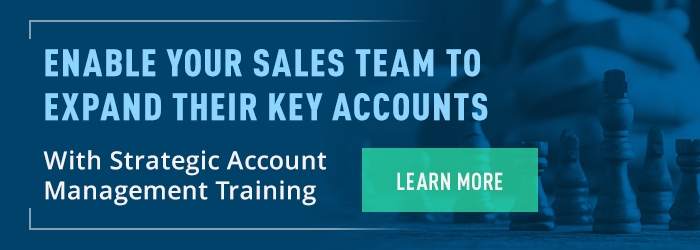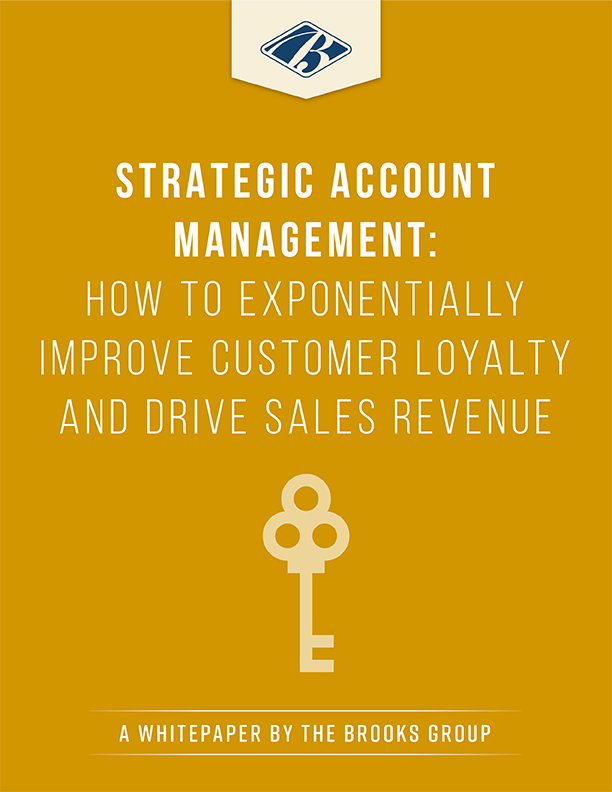Becoming a Trusted Advisor
When you think back to some of your best dining experiences, you likely remember that server who went out of his or her way to offer suggestions on the best specials, can’t-miss wine pairings, and the “to-die-for” bread pudding that people drive for hours to come and sample. There’s no doubt that you, too, would drive hundreds of miles to repeat that experience – and that you’d seek out that trusted server, who moved heaven and earth to offer such a memorable evening.
In today’s selling paradigm, it’s become clear that enterprises, too, are looking for that memorable experience when they seek out a vendor to fulfill their needs. No longer is it adequate to offer a feature and benefits dump and expect to close the deal. Instead, businesses are looking for a trusted advisor – someone knowledgeable on their company and its objectives, and able to suggest specific solutions, in detail, that will support greater efficiencies or increased sales.
In fact, trusted advisors, according to a Harvard Business Review study, increased purchase ease by 86 percent – and made them 62 percent more likely to close the sale than their less-advisory-oriented competitor.
5 Keys to Being a Trusted Advisor
So, what are the keys to embracing the role of a trusted advisor? And how can you best ensure that you are putting your best foot forward? Let’s take a look:
- Knowledge – These days, we know that most of our prospects are gathering information on their own – online sources likely offer decent insights about the surface information about your company or offer. By the time these prospects are consulting you as their trusted advisor, they really need you to paint the vision – how will your offering benefit me? How has it been tested with other people in my vertical for efficacy? Today’s trusted advisor needs to have a deep well of relevant knowledge that goes beyond what the general public can gather, and is customized and relevant to the person to whom you are speaking.
- Access – The concept of human contact – often spoken of in the past tense when considering artificial intelligence, machine learning, and a host of other ways that the public can interact with companies these days – still rules supreme in the world of the trusted advisor. Though technology has been a catalyst for self-service, it also places a premium on the importance of accessibility, during those occasions when the consumer actually raises their hand and seeks more help. It also underscores the real opportunity sales organizations have to cultivate ongoing relationships with the consumer. Every now and then, particularly in a situation when the issue is sensitive, it’s good to be able to look someone in the eye and have an earnest conversation. If possible, offer a regular standing meeting to valued clients – these serve as an open-door for conversation. It’s a great time for you to hear how your customer is experiencing your product, and for you to offer new or value-add solutions if some have become available.
- Exposure – As a sales training professional, I never thought I’d be advising clients to start an Instagram page or to talk about the myriad benefits of YouTube. That said, social media influencers today have become prized for their “trusted advisor-like” status, so it’s important for you to be where they live. At The Brooks Group, in our IMPACT selling program, we speak of a concept called primacy – the importance of positioning yourself, so when the time comes for the buyer to need you, they are used to hearing your name, and associating it with what it is that they are looking for. That’s why getting out there can be a great ally in this effort. You can develop “new school” content for the social channels like YouTube, Instagram or LinkedIn; or keep it “old school” with white papers, newsletters, conference and trade show attendance, and speeches and presentations. Stay in consciousness, without being gratuitous. And be sure to keep your political views to a minimum, and your positivity to a maximum.
- Setting Expectations – When planning for meetings with your clients, either at your office or via teleconference, be sure to set the right tone, and manage to your clients’ expectations – this is true whether you are selling pumps and compressors, or life-saving equipment to neurologists. Be sure the setting for the meeting is appropriate – if it’s in your physical office, the “Mullet” rule applies – business in the front and party in the back. For the broadest appeal to visitors, eliminate any polarizing items from view – and, most importantly, keep it clean, keep it orderly, and keep it functional. And, if most people meet with you from a home office via teleconference, the presence of barking dogs or crying babies may not be the best way to inspire confidence.
- Behavior – Be GREAT at what you preach. Do what you say you are going to do when you’re going to do it. If you want someone to trust you, and you are promising information or other deliverables at a specific time, you’ve got to deliver when you say you are going to. If you cannot, you need to acknowledge the misstep with humility and be accountable. Most critically, don’t make a habit of being that person who’s always a few minutes late to every interaction. If you want your customers to believe in you, you have to cultivate this faith, trust, and loyalty through your actions.
Learning the nuances of how to be a trusted advisor can be a make-or-break proposition in today’s marketplace. We at The Brooks Group can ensure that the investment you are making in sales training is absorbed and embodied – no matter how fidgety the pro. For more than 40 years, The Brooks Group has partnered with sales organizations around the globe—helping them to hire, train, coach, and develop salespeople and sales managers to reach maximum performance levels.
If we can help you set your team up for consistent sales success, let’s start a conversation.
Strategic Account Management – How to Exponentially Improve Customer Loyalty and Drive Sales Revenue
The best way to bring in revenue for your company is to develop long-lasting relationships with your key clients. By giving your team the tools to manage their accounts strategically, you can reduce your sales cycle, improve customer loyalty, and increase overall sales and revenue.





